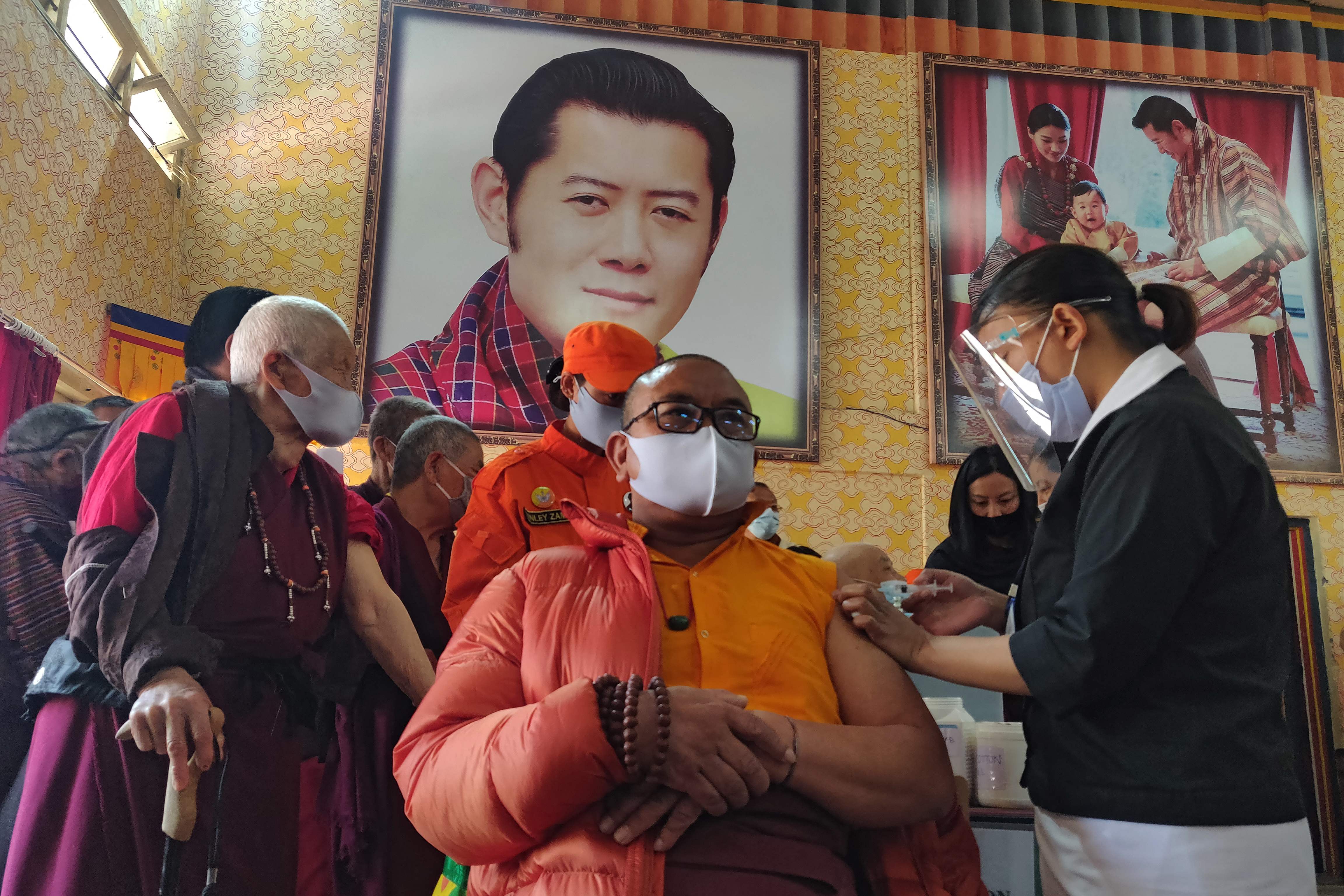The Independent's journalism is supported by our readers. When you purchase through links on our site, we may earn commission.
Bhutan is on brink of vaccinating its entire adult population within a week of launching campaign
Bhutan began its vaccination campaign on 27 March and Friday would be the last day for the inoculation drive

Your support helps us to tell the story
From reproductive rights to climate change to Big Tech, The Independent is on the ground when the story is developing. Whether it's investigating the financials of Elon Musk's pro-Trump PAC or producing our latest documentary, 'The A Word', which shines a light on the American women fighting for reproductive rights, we know how important it is to parse out the facts from the messaging.
At such a critical moment in US history, we need reporters on the ground. Your donation allows us to keep sending journalists to speak to both sides of the story.
The Independent is trusted by Americans across the entire political spectrum. And unlike many other quality news outlets, we choose not to lock Americans out of our reporting and analysis with paywalls. We believe quality journalism should be available to everyone, paid for by those who can afford it.
Your support makes all the difference.Bhutan’s health minister has said the country will vaccinate its entire adult population within a week of launching a nationwide innoculation drive.
The country’s prime minister, Lotay Tshering, had said the country aims to become one of the first in the world to administer the first doses to all its eligible population. He said the second dose of the vaccination programme is scheduled 8 to 12 weeks from now.
A government update said 423,114 people have been vaccinated as of Thursday. Bhutan had covered nearly 40 per cent of its eligible population, estimated at 533,558, by the second day of the vaccination campaign which began on 27 March.
Sangeeta Thapliyal, professor of Inner Asian Studies at Jawaharlal Nehru University, told The Independent that it is a remarkable achievement by Mr Tshering, who is a doctor by profession. She said he has been able to contain the spread of the virus despite limited medical infrastructure.
Bhutan has reported 873 cases of Covid-19 and one death since the pandemic began, according to data from Johns Hopkins University.
Read more:
- WHO chief calls for deeper probe into lab leak Covid origin theory
- BBC China correspondent leaves Beijing over ‘threat to safety’
- Divers recover missing cockpit voice recorder from crashed Indonesia jet
- China warns US over ‘red line’ after American ambassador makes first Taiwan visit for 42 years
- Why well-heeled travellers are flocking to Kenya during lockdown
Ms Thapliyal said the country has been actively combating Covid-19 and perceived it as a health emergency. “It brought out a national preparedness and response plan for the outbreak of coronavirus. Travel restrictions, quarantine and other related measures showed the country’s quick response to the emergency-like situation.”
A 30-year-old woman became the first one in the country to get the jab at a vaccination centre in Bhutan’s capital Thimphu. “Let this small step of mine today help us all prevail through this illness,” she said after getting the first dose of the vaccine.
The prime minister and his family got vaccinated on the first day of the campaign. Cabinet ministers and other parliament representative have also received Covid-19 jabs, according to news agency ANI.
Indian virologist Shahid Jameel said that while it’s an achievement for Bhutan, it’s also an achievement for India’s vaccine diplomacy.
Bhutan received the first consignment of 1,50,000 doses of Covishield — developed by AstraZeneca-Oxford and manufactured by the Serum Institute of India — in January from India. It received a second batch of 400,000 doses from New Delhi on 22 March and initiated the vaccination campaign.
Bhutan prime minister also thanked his Indian counterpart, Narendra Modi, for “timely support and delivery of the vaccine. You played a big part in making this possible.”
Dr Rui Paulo De Jesus, the World Health Organisation representative to Bhutan, also expressed gratitude towards India for providing the vaccines.
India vaccinated 1,500,000 people in the first week of its inoculation drive which began in January. In the UK, more than 130,000 people were vaccinated in the first week of the vaccination programme.
Join our commenting forum
Join thought-provoking conversations, follow other Independent readers and see their replies
Comments